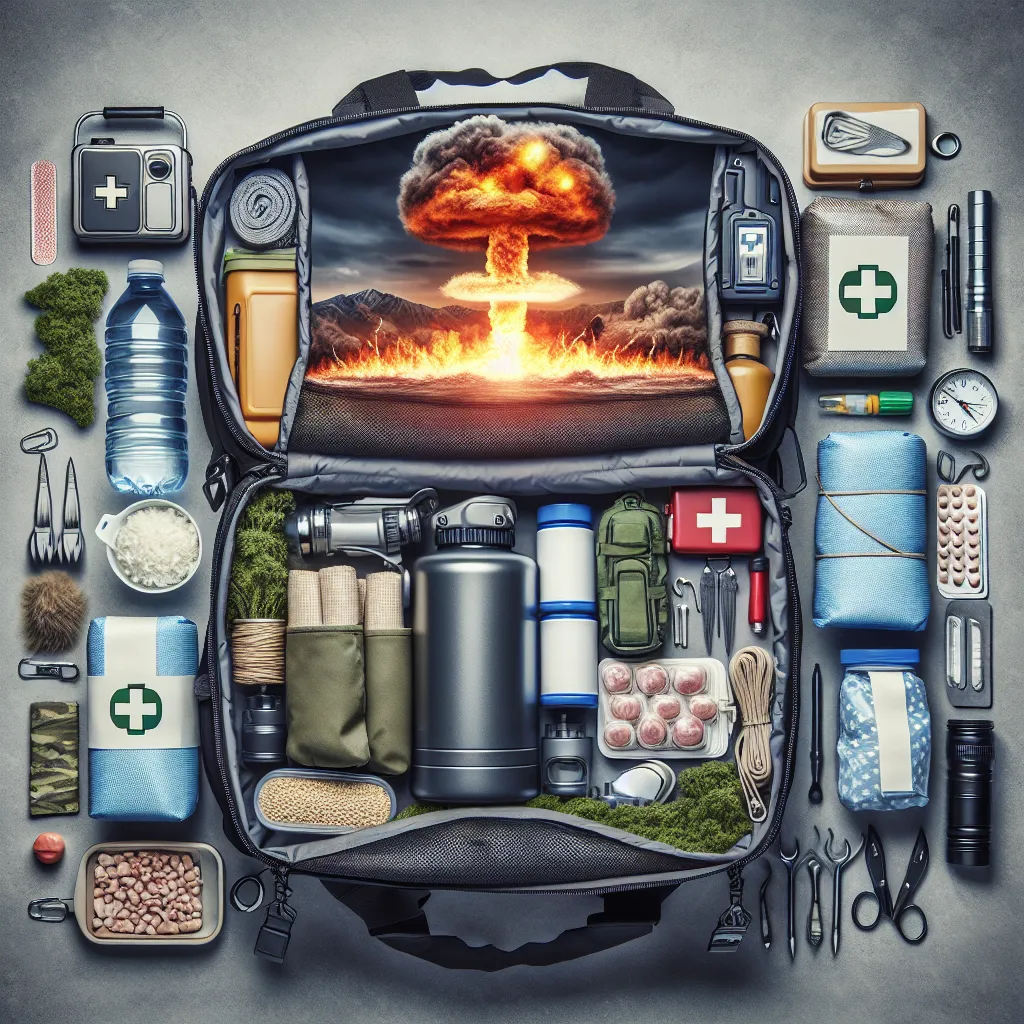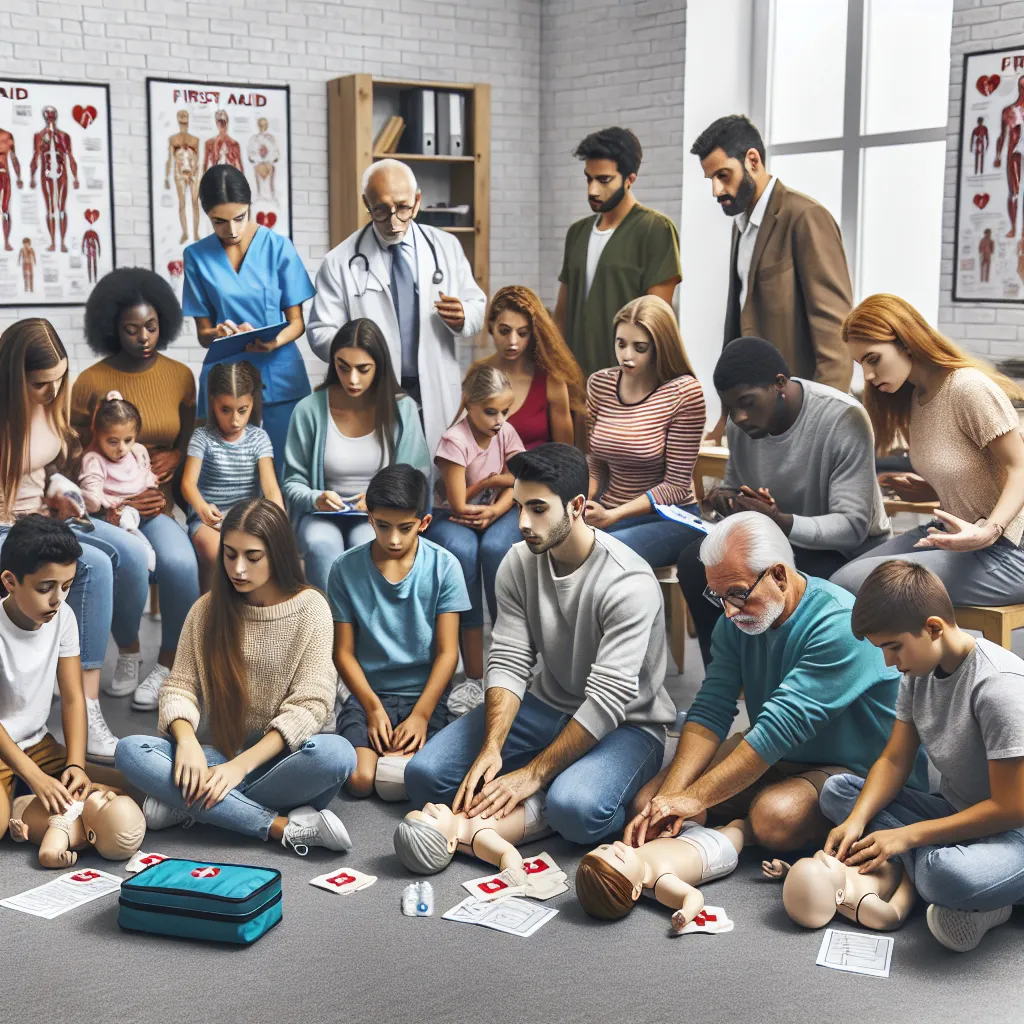In the article “Water and Water Purification,” the importance of preparing for a disaster by including water and water purification supplies in an emergency kit is emphasized. Clean drinking water and safe water access are vital for survival, with suggestions for including several gallons of water per person, purification tablets or drops, portable water filters, and clean water storage containers. The section on “Non-Perishable Food Supplies” underscores the significance of including long-lasting food items such as canned goods, dried foods, and a manual can opener in a disaster preparedness kit, highlighting the essential nutrients and sustenance they provide when fresh food is unavailable. Lastly, in “Emergency Shelter and Warmth,” the article stresses the necessity of including items like a tent, thermal emergency blanket, and portable heat source, all crucial for providing emergency shelter and warmth during various emergency situations. The detailed and practical advice provided in the article encourages readers to thoroughly prepare for unforeseen emergencies by including these essential items in their disaster preparedness kits.
Key Steps to Creating an Effective Disaster Preparedness Plan
The article discusses the importance of understanding potential disasters and the essential components of a disaster preparedness plan. It emphasizes the significance of conducting a comprehensive risk assessment to identify natural and man-made threats and collaborating with local authorities and stakeholders. The article also highlights the key components of a successful disaster preparedness plan, including risk assessment, communication protocols, response procedures, business continuity planning, and regular training. Furthermore, it emphasizes the crucial steps of implementing and testing the plan to ensure its effectiveness during a crisis. Overall, the article provides valuable insights into creating a robust disaster preparedness plan, making it a must-read for organizations and communities looking to enhance their readiness and resilience.
Essential Disaster Preparedness Tips for Every Household
In this comprehensive article, the importance of creating an emergency preparedness kit for your home is highlighted, emphasizing the role of a well-stocked kit in ensuring safety and well-being during crises. The article provides a detailed list of essential items to include, such as water, non-perishable food, first aid kit, flashlights, emergency radio, personal hygiene items, important documents, and tools, tailored to cater to specific family needs. It also underlines the significance of regular review and updates to the kit’s contents, emphasizing the proactive steps to safeguard loved ones during unexpected disasters. The accompanying section on establishing a family disaster plan further reinforces the need for thorough preparation and clear communication to ensure safety and well-being. This insightful and practical guide is a must-read for anyone seeking to protect their family in the face of unforeseen emergencies.
Essential First Aid Techniques Everyone Should Know
The article provides comprehensive guidance on basic CPR steps, emphasizing the importance of quick and effective action in emergency situations. It highlights the critical steps of assessing the scene, performing chest compressions, and giving rescue breaths, stressing the significance of proper training and regular practice in emergency preparedness. Furthermore, the article delves into essential techniques for treating common injuries and wounds, stressing the significance of thorough wound cleaning and providing practical advice for different types of wounds. Finally, it underscores the importance of recognizing and responding to medical emergencies, underlining the need for being informed and prepared to provide timely care, whether for minor injuries or life-threatening conditions. The detailed insights and practical tips in the article make it a valuable read for anyone seeking to enhance their first aid knowledge and skills.
The Importance of Water Storage for Emergency Preparedness
The significance of water as a lifesaving resource in emergencies cannot be overstated, as it is essential for human survival, especially in times of crisis. Whether facing natural disasters or human-made emergencies, access to clean and safe water is paramount for sustaining life, and having a reliable water storage system in place is crucial. Adequate water storage not only ensures access to this lifesaving resource when regular water supplies are compromised but also plays a vital role in preventing the spread of waterborne diseases and ultimately saving lives. Recognizing water as a critical resource, prioritizing its storage, and understanding the principles of strategic water storage are essential components of emergency readiness, as they enhance response efforts and contribute to the safety and well-being of individuals and communities. By emphasizing the importance of water storage and its role in maintaining hydration, sanitation, and overall survival, this article underscores the significance of incorporating water storage into comprehensive emergency preparedness plans.
The Importance of First Aid Training in Emergency Situations
Understanding the vital role of first aid training in emergency response is essential for individuals and communities. This training equips people with the knowledge and skills required to provide immediate assistance in various emergency situations, potentially impacting outcomes significantly. In critical moments, trained individuals can make a life or death difference, also easing the burden on professional emergency responders in larger-scale emergencies. Additionally, first aid training fosters a culture of preparedness and empowerment within a community, enhancing overall safety and resilience. Recognizing the immediate impact of first aid skills in saving lives is crucial, as the actions taken in the first few minutes following an emergency can be the difference between life and death. Therefore, investing in first aid training is vital for creating safer and more prepared communities.





